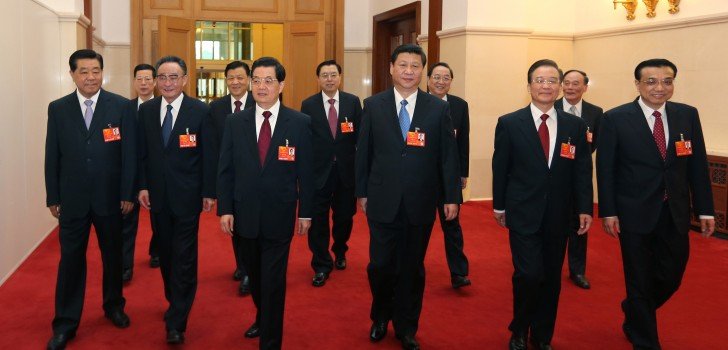Chinese president Xi Jinping’s comprehensive push for reforms, covering everything from the military to politics to corruption, has had to face “unimaginably” fierce opposition, according to hastily worded remarks carried by national media on Thursday.
In abnormally strong words, the statement said the proposed changes were at a serious stage and had encountered huge difficulties, affecting long-entrenched interest groups.
The timing and forcefulness of the remarks come just a week after the deadly Tianjin chemical disaster which killed over 100 people and injured hundreds more. Lax safety standards combined with corruption led to hundreds of tons of toxic chemicals being stored near residential housing.
The incident is a black mark on China’s international reputation and it appears Jinping is keenly aware of the implications – both foreign and domestic.
The statement also comes after a recent meeting of China’s communist party, in which the country’s powerful decision makers allocate responsibility to politicians. The fact Jinping has taken to the media so forcefully has led to speculation he has been rebuked by party elders.
The article said, “The in-depth reform touches the basic issue of reconfiguring the lifeblood of this enormous economy and is aimed at making it healthier.” It went on to say, “The scale of the resistance is beyond what could have been imagined.”
The statement was attributed to “Guoping”, an obvious pen name used by national media to make remarks on major Communist Party and state issues, which in this case referred to the Chinese president.
It appeared in national media including the CCTV and Guangming Daily websites.
According to observers the statement suggested that the reforms had not attained the desired outcomes and were being held up by an assortment of powerful groups.
According to Xu Yaotong, a political science professor at the Chinese Academy of Governance, the publication appeared amid the concerns that the anti-corruption crusade, which had aimed at a number of top politicians and armed forces officials, was diminishing and that other proposed changes had attracted criticism.
“The tone [of the commentary] reads furious,” the political science expert said, adding, “I feel that the central leadership has started to worry, based on the message indicated in the Guoping article.”
He said the criticism could be coming from any of three influential groups: cadres whose influence had been undermined, retired leaders who wanted to exert power, and civil servants discontented with strict rules.
The article comes after a sequence of People’s Daily publications this month condemning retired cadres for insisting on exerting power in the dark. It also comes after the end of the yearly agenda-setting meeting of the communist party elite.
Beijing-based political observer Zhang Lifan said the remarks were a sign that “things are not going well”.
“Obviously they did not reach any consensus at the political activities in Beidaihe. Different groups are pursuing their own ways,” said Lifan. “This is a test of the leadership’s ability to execute its mission,” he added.
Zhang said the objective of having the market play a central role in the “allocation of resources” was one case of an objective that was still a far from realization.
“The reform has to address politics and the economy at the same time. If the political system does not change, then inertia in the bureaucracy will just send the reform around in circles,” said the political commentator.
Zhang Ming, a political professor at Renmin University, said the push for reforms had not only failed to yield results, but was also retrospective.
“There’s resistance not just to the reforms, there’s other resistance too,” Ming said.
Stay Connected